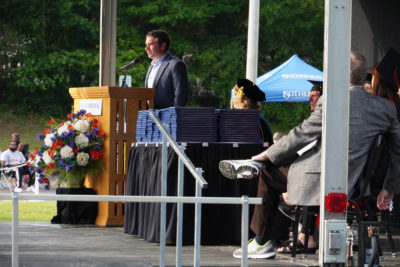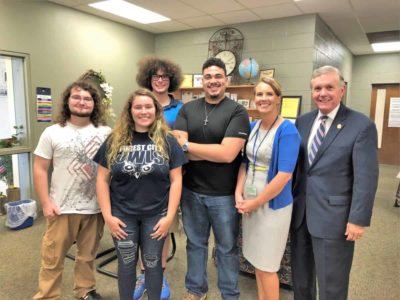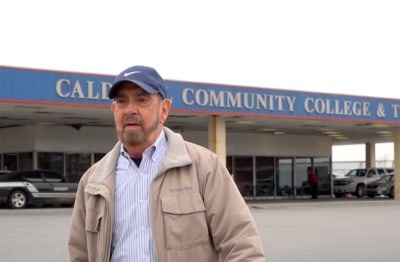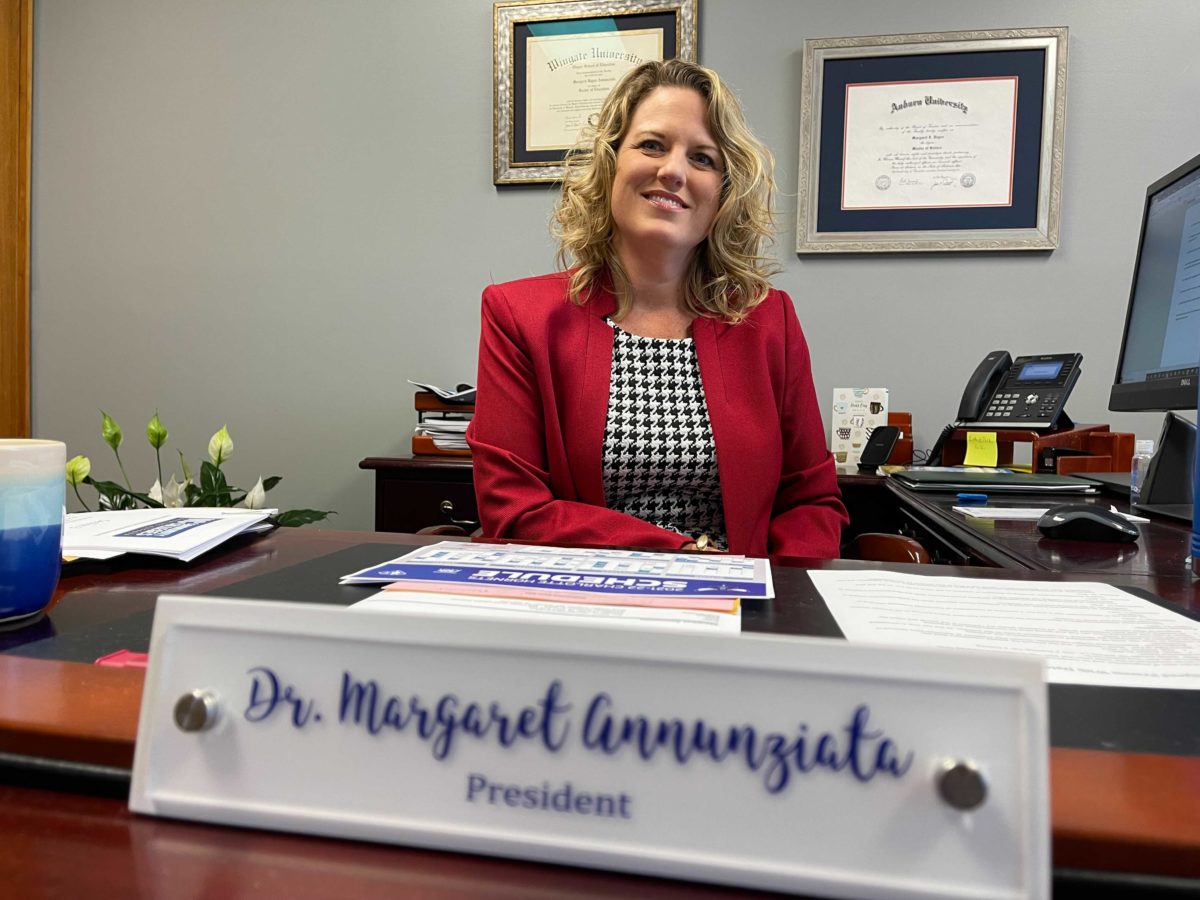
|
|
More than 10 presidents at North Carolina community colleges have stepped into the role during the pandemic. For some of these presidents, it is their first time to ever lead a community college.
That is true of Isothermal Community College’s (ICC) president, Dr. Margaret Annunziata, who assumed leadership on Feb. 1, 2021 after the retirement of former Lt. Gov. Walter Dalton.
Prior to joining ICC, Annunziata worked at Davidson-Davie Community College for over 23 years. She most recently served as the vice president for academic affairs at the college.
EdNC recently sat down with the new president to discuss moving to a new community, leading during a pandemic, planning for the future, and more.
“I don’t know that I had a specific expectation, which probably was a good thing. Because I’m pretty sure that if I would have, it wouldn’t have been the experience of stepping in during a pandemic.”
Dr. Margaret Annunziata, president of Isothermal Community College
While assuming the role of president during a pandemic is challenging, there have also been some benefits, Annunziata said. More virtual events meant less travel, which allowed Annunziata the opportunity to engage in the community more.
“It really allowed me to focus in and get to know members of the college community, the faculty and staff, and kind of naturally develop relationships,” she said.
And building relationships is critical at a time when there is uncertainty because of a global pandemic.
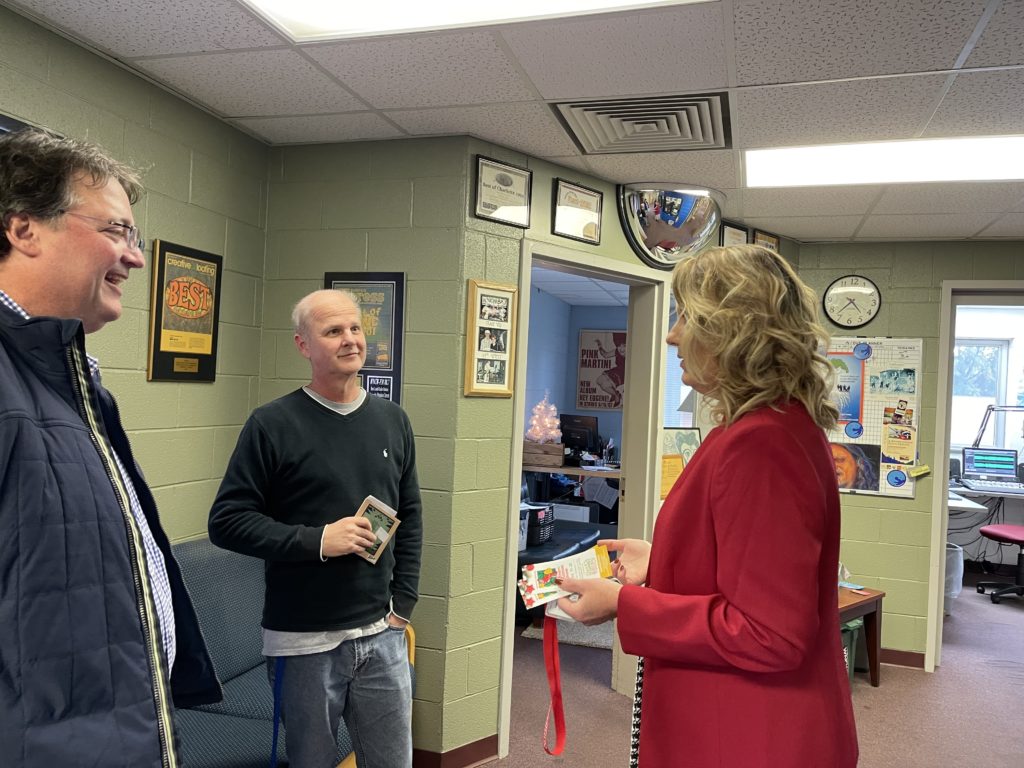
“Faculty and staff have some angst around what to expect and how to manage their environment and the changes that have come because we’ve had to flip our approach to teaching and learning in many cases,” Annunziata continued.
Leadership is relational, and leading means you try to consider how to best support each other.
The support that Annunziata described has not just occurred within the confines of the institutional walls. Isothermal Community College has experienced a lot of loss this past year — some of it COVID related.
“I have been to more than two dozen funerals,” Annunziata said.
Mike Gavin, director of marketing and community relations at Isothermal Community College, sends email updates when the campus community experiences loss. Before this year he has never had more than one death to share in the same email. And the deaths are not just distant relatives. These deaths have been college employees, immediate family members, and students.
“It’s just been a rough year,” Gavin said.
But despite the challenging year, Annunziata is hopeful.
“When I moved here, one of the things that I noticed was the sign coming into the area that says ‘Small Town Friendly.’ And I thought, this is where I belong because that is what I experienced growing up in Western Kentucky,” Annunziata said.
But the president also experienced something in Western Kentucky that she hopes to prevent in Rutherford and Polk counties – and that is young people moving away.
“When you export your greatest resource, which happens to be your young people, then the community goes away. It dries up. So I feel a commitment and responsibility to engage as a college in this community to prevent that from being the case,” she continued.
A global experience for students
Before his departure, Dalton worked to build an international program at Isothermal. The idea was to partner with a local industry that was also a global industry.
“The industry would identify real-world, industrial problems, and our students would work with the industry to solve that problem in collaboration with their employees or other students in Europe,” Dalton said in a previous interview with EdNC.
Isothermal partnered with Trelleborg, a Swedish company that is traded on the New York Stock Exchange. In Rutherford County, Trelleborg manufactures a rubber coating fabric that is frequently used in the aeronautics industry.
After receiving a grant from the Appalachian Regional Commission (ARC) for the program, Isothermal built a program to train workers and students to engage in a global economy.
Although the program had been in the works for several years, COVID-19 slowed the timeline and delayed its progress.
In spring 2021, five Isothermal students ranging in age from late teens to late 30s began working on a manufacturing problem that Trelleborg had on their production line. The problem involved a process called calendering where rolls of fabric are run through rubber into heated rollers that attach the coating to the fabric.
“Over time those rollers wear out and become inconsistent,” Gavin said.
In a previous interview, Anne Hardy, engineering instructor for Isothermal, described the process.
“A thin layer of rubber is applied under a great deal of heat and pressure. That tends to wear down the rolls to the point where the thickness of the coating can vary enough to make a difference in the end product. To fix the problem, the rollers must go through a grinding process to restore a uniform thickness.”
But the grinding process is costly, in both monetary value and lost production time.
Working with Trelleborg and students at the Teknikcollege Skane in Sweden, Isothermal students developed a way to measure the waste and predict when the rolls need resurfacing.
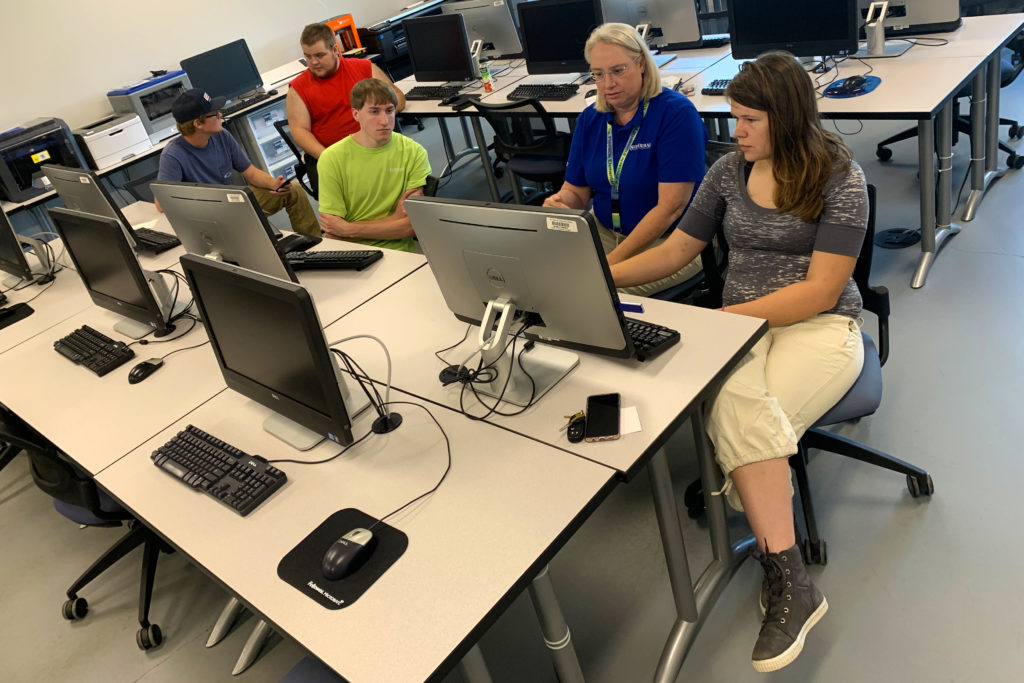
Originally, students would travel to Sweden to present their findings, but COVID disrupted international travel.
Instead, the five students met locally with Trelleborg representatives in September to reveal their analysis and findings.
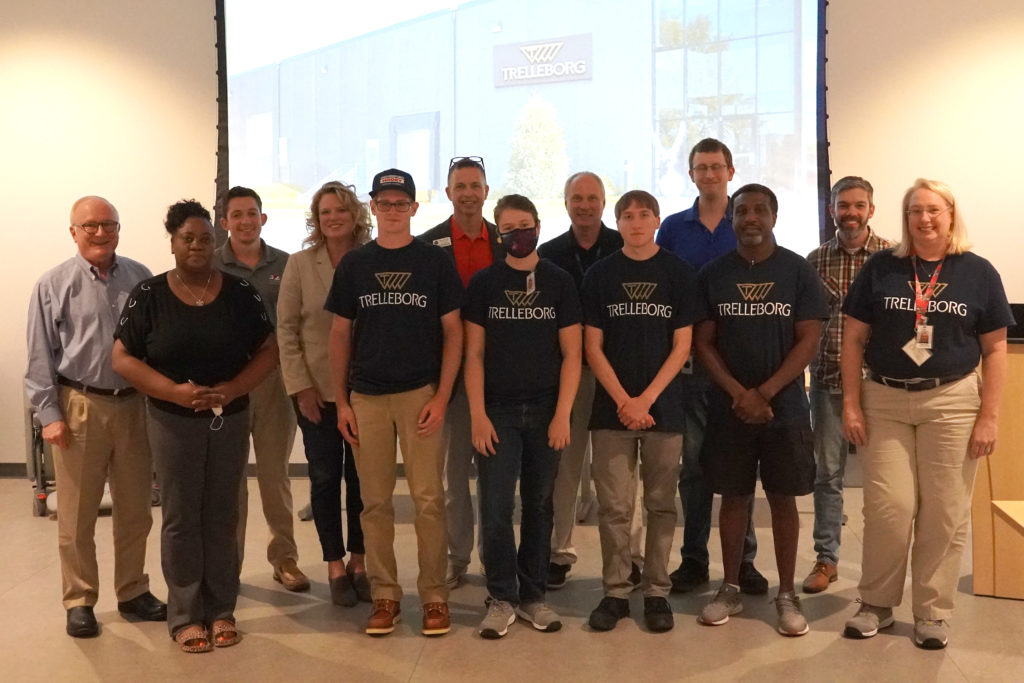
Annunziata, who attended the presentation, asked the Trelleborg team about the benefits of this partnership – both for the students and for the company.
The lead engineer for Trelleborg told the group that after the presentation, he intended to change their practice that day.
“The learning outcomes related to this project will continue to serve students in their future careers as they utilize the problem-solving, communication, collaboration, and cultural competencies gained through this project,” Annunziata said. “By gaining the experience that this project provides during their engagement at ICC, these students have a competitive advantage as they enter the workforce, having already demonstrated highly sought-after skills in the work-based learning environment.”
The next group project with Trelleborg will start in spring 2022.
From engineering technology to banjos
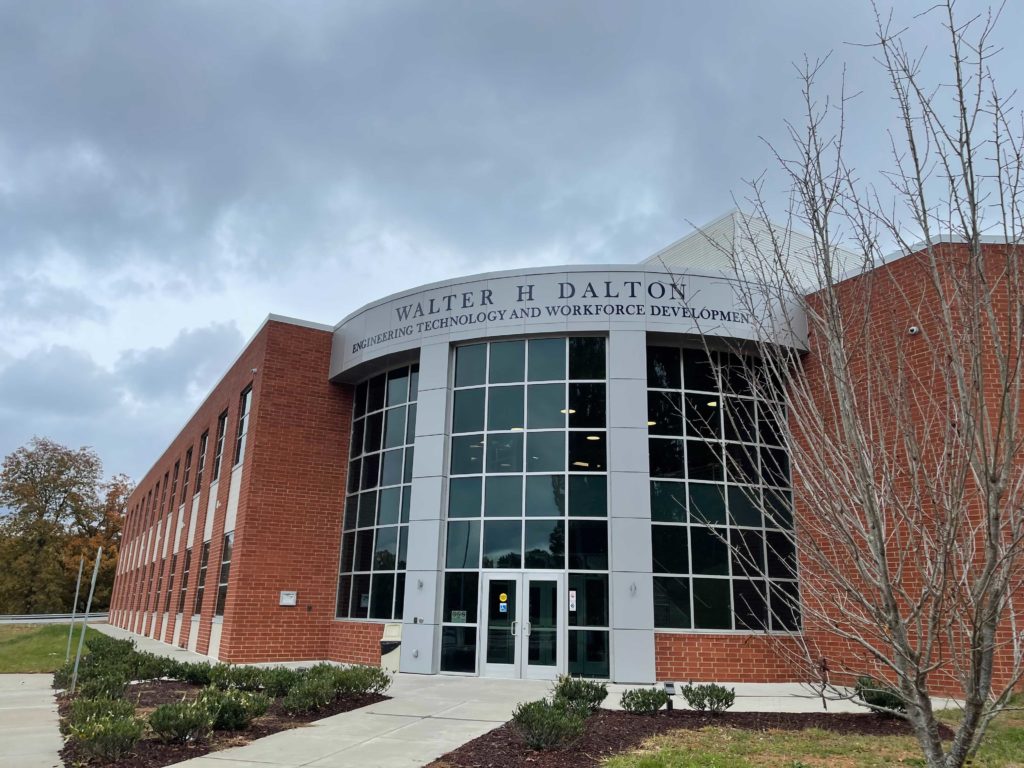
The Walter H. Dalton Engineering Technology and Workforce Development building is a large space, totaling 31,000 square feet. The building opened in Feb. 2019 and houses everything from the Small Business Center to welding stations to a 125 kilovolt substation breaker.
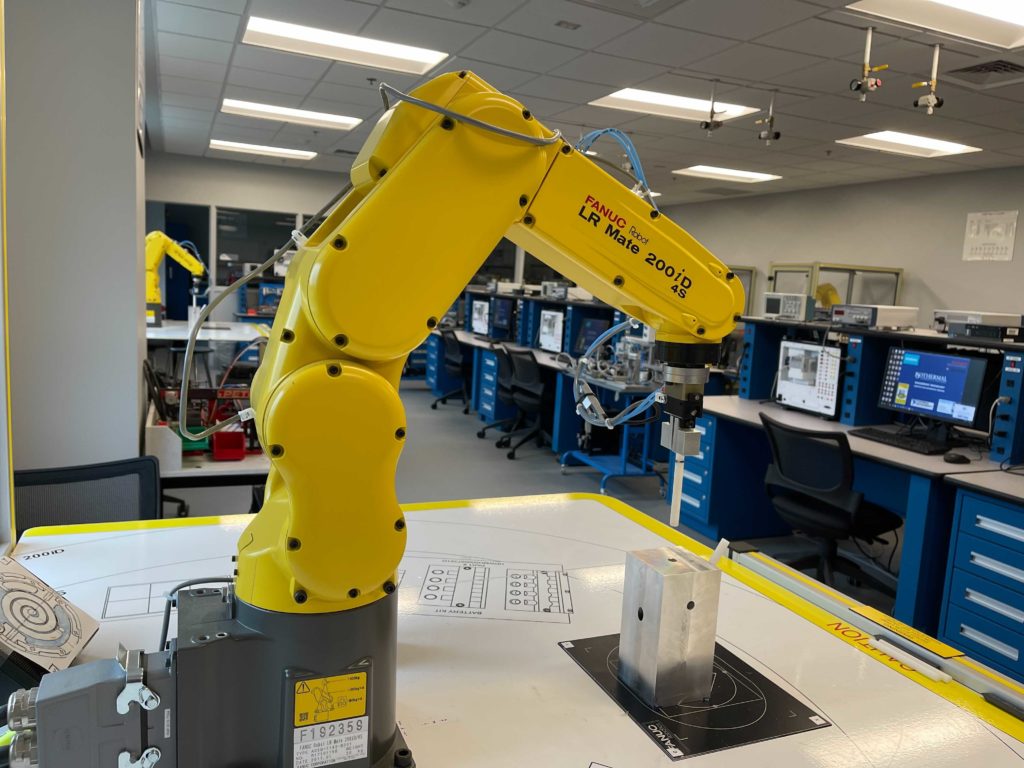
Equipment in Engineering Technology building. Emily Thomas/EducationNC 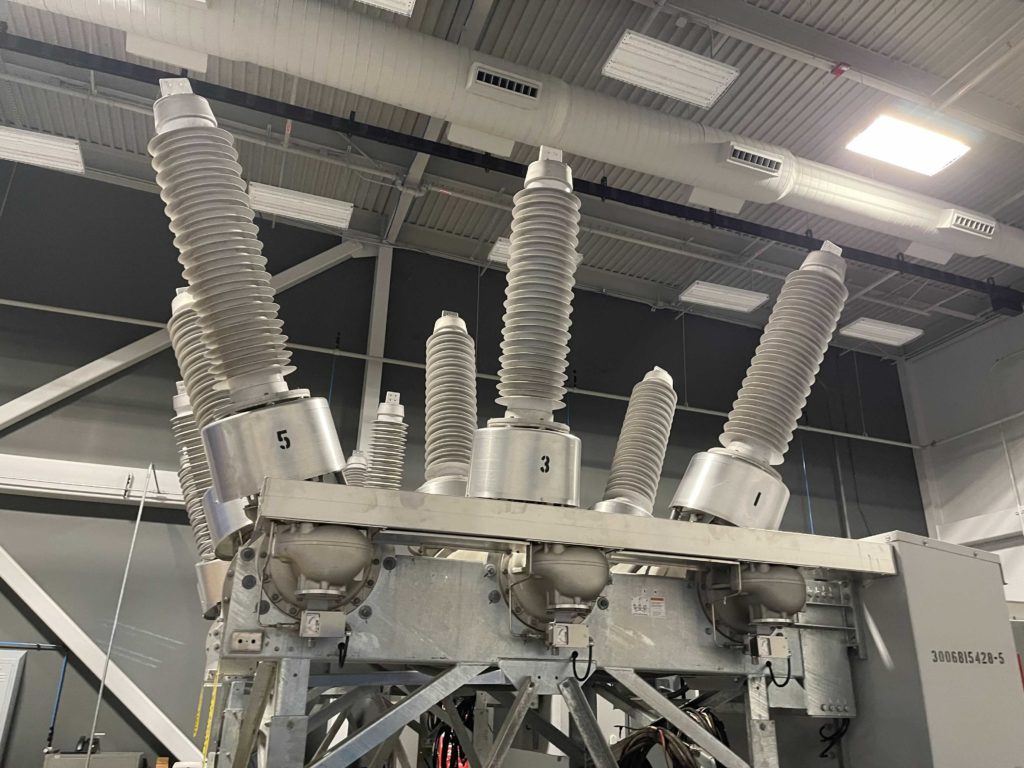
Substation breaker. Emily Thomas/EducationNC
This summer, Isothermal received $30,000 from the Duke Energy Foundation to invest in the college’s Electronics Engineering Technology program. Isothermal was one of 19 organizations to receive the grant.
The award is an opportunity for the college to help students improve their education and skills as protective relay technicians who will enter the electric utility industry. According to Annunziata, three years post-completion, graduates of the program are able to earn six figures.
Seven months after the ribbon cutting ceremony of the new Engineering Technology and Workforce Development building in 2019, WNCW celebrated its 30th year on the airwaves.
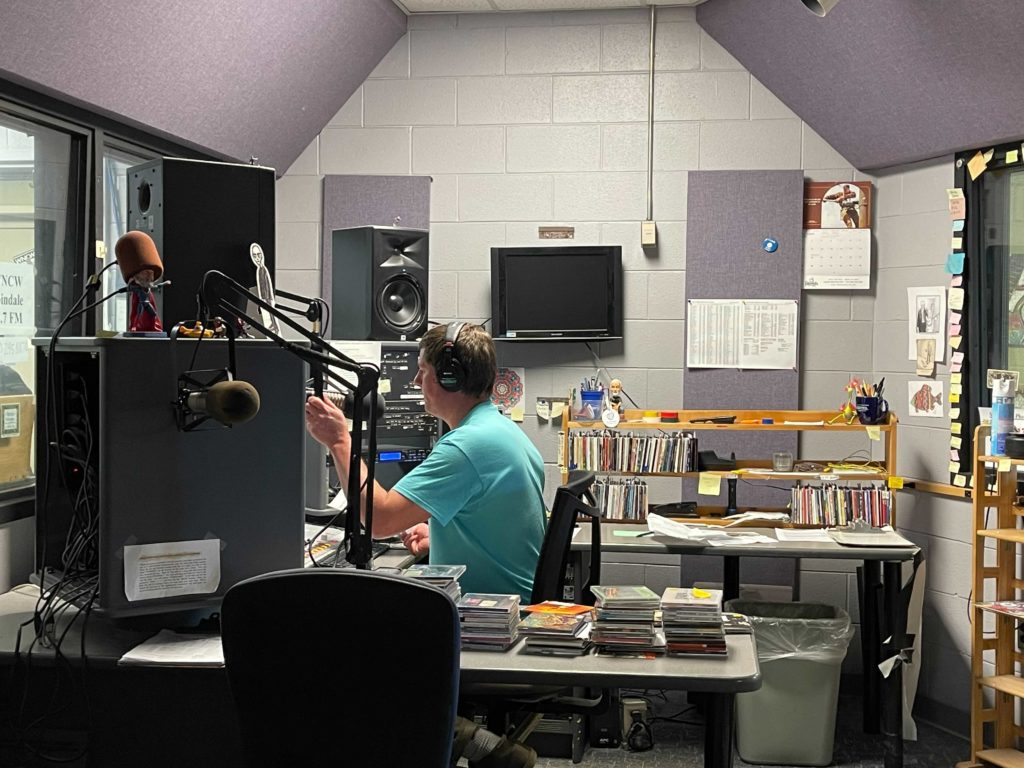
WNCW is a public radio station housed and broadcasted from Isothermal’s campus. The station plays a mix of music genres, including alt-country, rock, Americana, bluegrass, Celtic, reggae, jazz, old-time, indie, blues, classic country, world beat, gospel, and singer songwriter. WNCW also carries NPR’s Morning Edition and headlines.
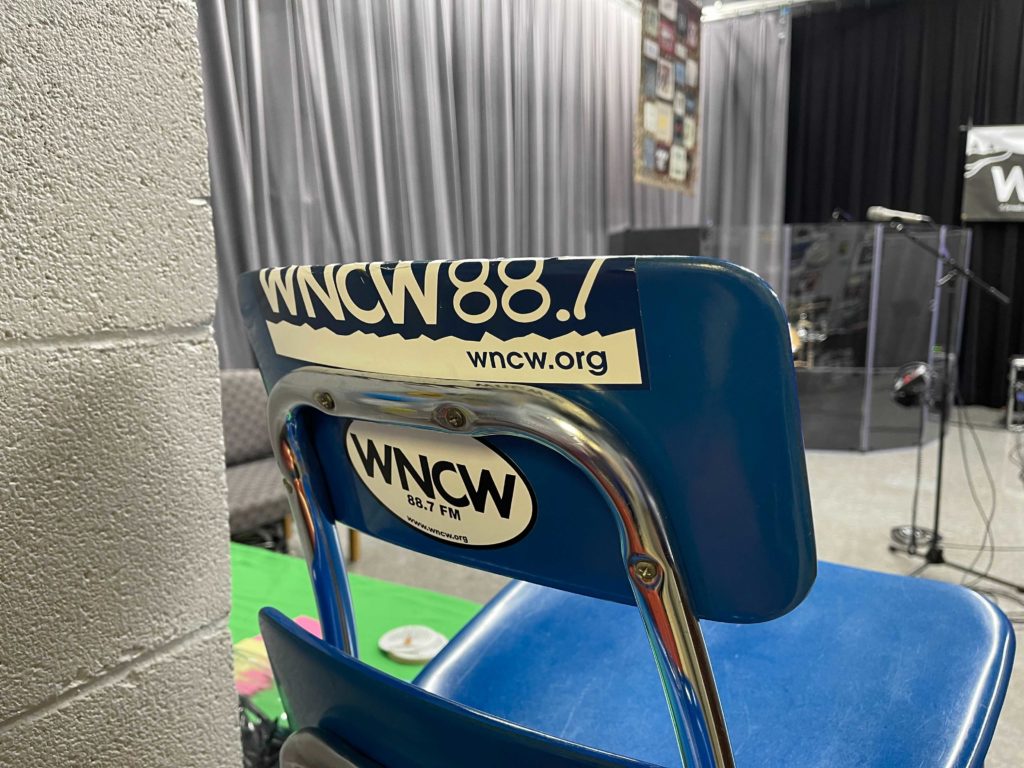
Like its musical mix, the halls of the radio station are eclectic. Lined with CDs, band stickers, and autographed photos from musicians, it has a vibe that is strikingly different from the Engineering Technology and Workforce Development building.

WNCW. Emily Thomas/EducationNC 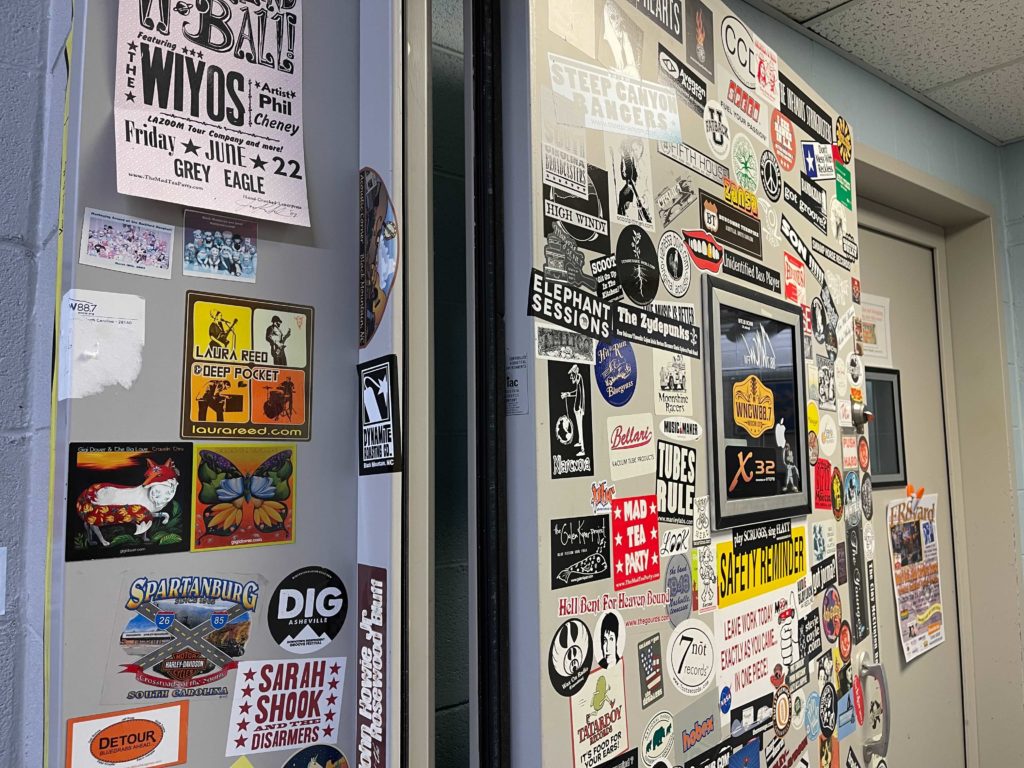
WNCW. Emily Thomas/EducationNC
In a 10-page document, Celtic Winds music host Richard Beard described the birth of WNCW. In the early 1980s, the North Carolina General Assembly appropriated money to each community college to create a single, job-related curriculum. Rockingham Community College created a fine woodworking program, Haywood Community College developed a sawmill operation for its Forest Management program, and Isothermal Community College chose Broadcasting Technology, a program that is still enrolling students today.
WNCW has a storied history with deep roots. And while its audience has broadened and gone global, for many Western North Carolinians, WNCW reminds them of home.
“I grew up listening to WNCW with my dad. He’d always have ‘Goin’ Across the Mountain’ playing in the car every Saturday afternoon. My car radio stays tuned to WNCW because of the eclectic mix of music that you can’t find on commercial radio. We are lucky to have a public radio station with such great programming in Western North Carolina.”
Andrew Bradshaw, college liaison for high school programs at Isothermal Community College
What’s next for ICC
“I had the good fortune of coming in at a time when a new strategic plan was due … The opportunity to focus on strategic planning and to really engage with every member of our college community, in that process, has been significant,” Annunziata said.
Isothermal is in the final stages of its strategic planning process. The strategic plan will go before ICC’s Board of Trustees for approval at their next meeting, with an effective date set for Jan. 1, 2022.
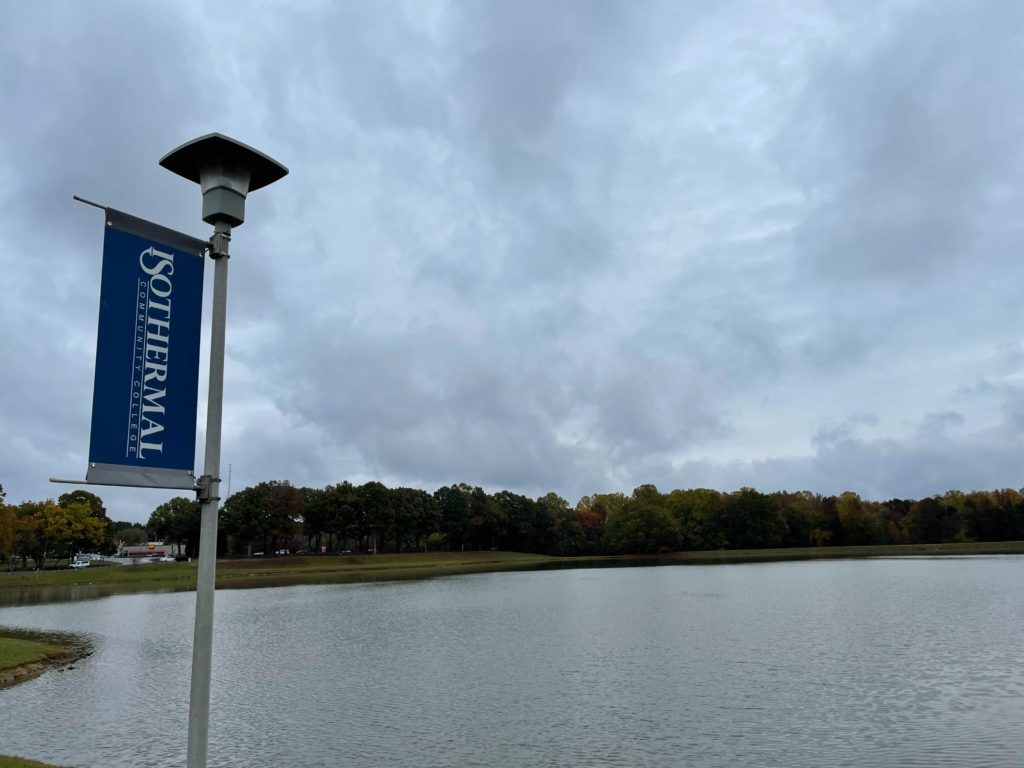
Some of the directions include an emphasis on strategic partnerships that promote economic and social mobility, providing robust support systems and academic support systems that meet students where they are, leveraging technology to enhance effectiveness, and more.
When asked, “What keeps you up at night?,” Annunziata says her concern continues to be for the people the college serves and for the people they are not serving.
“I think that my concern for the people we serve, and whether or not we are doing that in a way that best meets their needs, keeps me up at night … I think about those we are not serving … and how do we engage with them because it makes a difference for them. That’s why we’re here … There is so much riding on how we serve each of the individuals within our community to make their lives better.”
Dr. Margaret Annunziata, president of Isothermal Community College.
Editor’s note: The Duke Energy Foundation supports the work of EducationNC.



